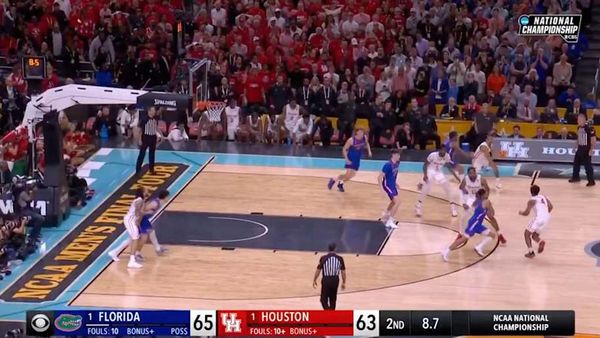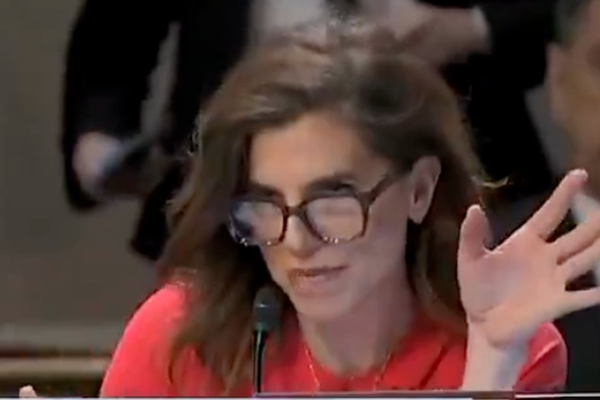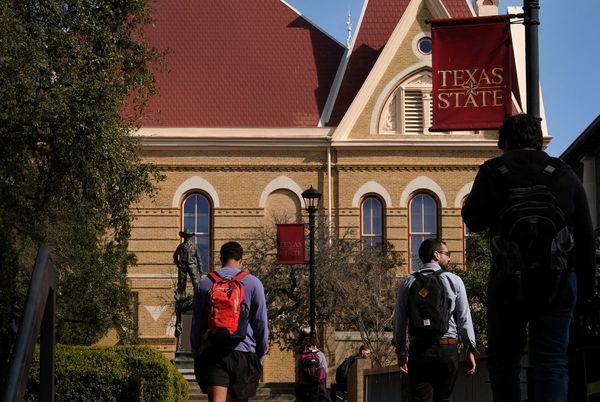/https://static.texastribune.org/media/files/5ac008bd1fd6b847e0cce97aa40fa1e4/Stephen%20Miller%20REUTERS%20TT%2001.jpg)
A white male Texan who was rejected by six Texas medical schools filed a class-action lawsuit Tuesday claiming that they illegally consider race and sex during admissions because they accepted Black, Hispanic and female students whose academic credentials were inferior to those of white or Asian applicants.
Plaintiff George Stewart filed the lawsuit against Texas Tech University Health Sciences Center, the University of Texas at Austin, University of Texas Health Science Center at Houston, University of Texas Medical Branch at Galveston, University of Texas Health Science Center at San Antonio and University of Texas Southwestern Medical Center, as well as their presidents, medical school deans and admissions officers.
The lawsuit comes as the conservative majority in the U.S. Supreme Court appears poised to roll back policies that allow race to be considered in college admissions in two cases argued before the court last fall. The court is expected to rule on those cases this spring.
Those lawsuits were brought to the high court by the affirmative-action opponent group Students for Fair Admissions, a nonprofit led by Edward Blum. Blum played a key role in the legal challenge to UT-Austin’s admissions policy, which UT-Austin ultimately won. Now, the group is seeking to overturn Grutter v. Bollinger, a 2003 Supreme Court ruling that upheld U.S. colleges’ ability to consider race in admissions in certain cases.
In the new lawsuit against Texas medical schools, filed in U.S. District Court in Lubbock, Stewart is represented by America First Legal, a group created by Stephen Miller, a former policy adviser to former President Donald Trump, and Jonathan Mitchell, a former solicitor general for Texas and the legal architect of the state’s six-week abortion ban.
Stewart’s lawsuit alleges that the admissions practices at the six medical schools violate the U.S. Constitution, including the Equal Protection Clause of the 14th Amendment.
According to the lawsuit, Stewart graduated from UT-Austin with a 3.96 grade point average and a biology degree. He scored a 511 out of a possible 528 on the exam required for admission, known as the MCAT, and spent two years applying to medical schools.
After he was rejected by the schools, Stewart filed an open-records request to obtain admissions data for each school, which included the race, sex, GPA and MCAT score of every applicant who applied for the 2021-22 school year.
The lawsuit says that according to an analysis of the data, the median and mean GPAs and MCAT scores of Black and Hispanic students were lower than those of white and Asian students. The lawsuit also says the data shows that accepted female students had lower MCAT scores than male students.
“The data demonstrate that each of the defendant medical schools is providing admissions preferences to female, black, and Hispanic applicants while unlawfully discriminating against whites, Asians, and men in admissions decisions,” the lawsuit alleges.
It also points to a policy at the John Sealy School of Medicine at the University of Texas Medical Branch at Galveston that says the admissions committee seeks to admit qualified applicants who are underrepresented in medicine and economically disadvantaged.
A spokesperson for the University of Texas System declined to comment on the lawsuit. A Texas Tech University System spokesperson said the system had not yet been served with the lawsuit and does not comment on pending litigation.
The lawsuit states that Stewart is “able and ready” to reapply to each of the medical schools, but current policies prevent him from “competing on equal terms with other applicants.” Stewart is asking the court to prohibit the medical schools from considering race or sex in student admissions and would require the schools to choose applicants “in a color-bind and sex-neutral manner.”
It’s the second lawsuit filed against a Texas university by an individual represented by the group as it tries to chip away at affirmative action, which Miller called an “illegal ‘equity’ polic[y]” in a statement.
In September, a UT-Austin professor represented by America First Legal filed a class-action lawsuit against Texas A&M University, alleging a new faculty fellowship program discriminated against white and Asian applicants. In December, university lawyers filed a motion to dismiss the lawsuit, stating that the professor’s arguments were hypothetical because the professor never applied for the program and noting that he filed the lawsuit against the wrong entities.
The professor, Richard Lowery, dismissed the claims against the university system three weeks later and filed an amended complaint against Texas A&M University, President Kathy Banks, Alan Sams, interim provost and vice president for academic affairs, Vice President for Diversity Annie McGowan and Vice President for Faculty Affairs N.K. Anand.
Disclosure: Texas A&M University, Texas Tech University, Texas Tech University Health Sciences Center, Texas Tech University System, University of Texas at Austin, University of Texas Health Science Center at San Antonio, University of Texas Medical Branch at Galveston and University of Texas System have been financial supporters of The Texas Tribune, a nonprofit, nonpartisan news organization that is funded in part by donations from members, foundations and corporate sponsors. Financial supporters play no role in the Tribune’s journalism. Find a complete list of them here.










